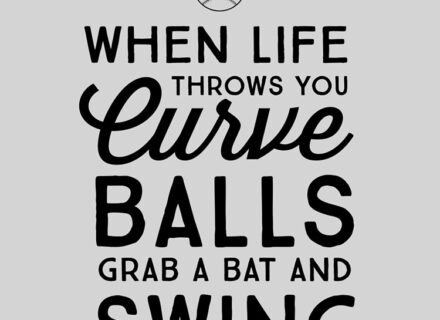If you’re a manager, you likely have some form of a one-on-one meeting with your direct reports. Whether it’s daily, weekly, monthly or quarterly. By phone, email, or in person. In some form or fashion you are [or should be] making time to check in with your direct reports on the happenings in the business. Updates on projects, problems, opportunities, personal development, or simply hearing how things are going. This is the foundation of a 1:1 meeting.
In my role as the vice president of inside sales and marketing for SingleHop, I have several 1:1 meetings each week. These meetings are with my direct reports, my peers, and my boss. All of which are incredibly valuable in their own ways. And all of which happen with discipline and regularity. But, I’ve realized there’s a particular 1:1 that I have not given the time and focus it deserves. That’s what this post is really all about.
I’m talking about the 1:1 with myself. And no, I do not have a split personality- That’s not what I’m talking about. I’m talking about a fundamental need to regularly check-in with myself. To reflect on how things are going. How I’m feeling. My intentions. My opportunities for growth and development, and whether or not I am achieving my goals. It’s not that I do not do this at all, but I do not give it the same priority as the meetings with my people. I’m learning that this is a big mistake and missed opportunity in business and life in general. Read on to learn why and how to not screw up in this area like most people do.
Being Mindful about checking in with yourself- The Personal 1:1
Over the last couple years I’ve become more conscious about how I approach self-reflection. I’ve attempted to keep a daily journal, with limited results, but at a baseline I’m at least taking time to give more direct thought to how things are going and how I am feeling after a day at the office and at home with my family. I’m going to try the journal thing again because I do think that can be powerful. Check back with me in a few months and see how I’m doing.
When I have a really great day, I want to understand why. Because if I understand why, I can do things to replicate that feeling. If I just go through the motions and let the chaos of the day just pull me through, I have much less control over how I tackle the next day. Or, at least, I’m not as conscious about it.
As of late, I have been working to check in with myself three times daily. By creating this formal schedule I find that I am more likely to actually do it.
Morning
My morning routine has changed a number of times, but I feel like what I am doing now is most effective for having a really intent-driven day. Here’s a snapshot of what it looks like:
5:00am- Wake up (ugh… not easy sometimes.)
5:15am- Workout- During my workout I’m also thinking about what I need to do for the day. In effect, this is my first check-in for the day. How am I feeling? What are my intentions for the day? How is my attitude? If I can get my mind right during my workout, my productivity in the morning is much greater than if I just start the day and drift along in a wave of busyness. I heard this incredible quote by mindfulness coach to the New York Knicks, George Mumford. “Your attention follows your intention.” If you haven’t read or listened to any of Mr. Mumford’s work, I highly encourage it.
“Your attention follows your intention.” ~George Mumford
8:00am- By the time I end my workout and get to the office, it’s about 8:00am. When I get to the office I review the daily plan I set for myself the night before. I make sure it’s still aligned with the important things I need to accomplish. I give thought to how I can best tackle the projects, who I’ll need to work with on them, who I’ll need to communicate with, and so on. This 10 minutes or so of thoughtful consideration has really changed the flow of my days.
End of workday
At the end of the day [in the office], usually around 5:30pm, I will review my plan for that day and quickly reflect on what I got done and what I didn’t. Then I print out the next days plan and make sure I set my intentions for tomorrow. I have a self designed one-page sheet that I print off each evening before I leave the office, which maps out my plan for the next day. If you want a copy of this sheet, you can read this post on how I use it, plus download the template. It’s a staple in my productivity toolkit, and something I’ve developed over the last five years or so. Simple, but very effective.
This daily practice helps in a couple ways. 1.) It keeps my on track and accountable to the plans I’m creating. 2.) It helps get those plans out of my head and onto paper so I am not thinking about them all night when I should be focusing on spending time with my wife and son. ← Very important. Being in the present moment is a discipline I am working hard at these days. It’s fucking hard, but so worth it when you do it.
Before bed
This is a quick one, but just before I lay down in bed for the night I will try to take just a few minutes for a final check in. How am I feeling, did I spend meaningful time with my wife and son, was I present? This is a place where I am going to try journaling again, but we’ll see how it goes.
I also just came across this article that discussed an approach I’m just now starting to dabble with. It’s from a guy named Chris Holmberg. He says spend 15 minutes a day in reflection — true reflection, in a quiet space, with your inbox closed. He says to focus on three areas, which are:
The It: Did you execute your work — the emails you wanted to write, the strategy document you owed your boss — the stuff you had on your list at the start of the day? Did you do the things that were important and not just urgent?
The We: Did you add value to the lives of the people you interacted with? Did they walk away with more knowledge, energy, goodwill, help, a better understanding? “It’s not asking whether you made people happy,” says Holmberg. “That’s not always the goal.” You want to make sure you communicated clearly in a way that added value for them and met goals for you.
The I: How did you manage your own energy and mood? Self-care measures like working out, eating well, and sleeping enough are just as important as anything you do in the office. Ironically, those are the things most startup leaders drop first and yet the “I” is the foundation of leadership. You can’t help others if you deplete yourself.
If you want to read the full article, and you should, check it out here: http://bit.ly/1KjEQRm
Boiling it down for a better you
Self-reflection might seem a bit hokey at first glance, but the power of looking within and being mindful about how you’re operating on a daily basis can take you to a better place. However you choose to go about it, the simple act of these personal 1:1s are an important and critical force in delivering the best version of yourself each day.
Are you having a 1:1 with yourself? Let me know how it’s going.



